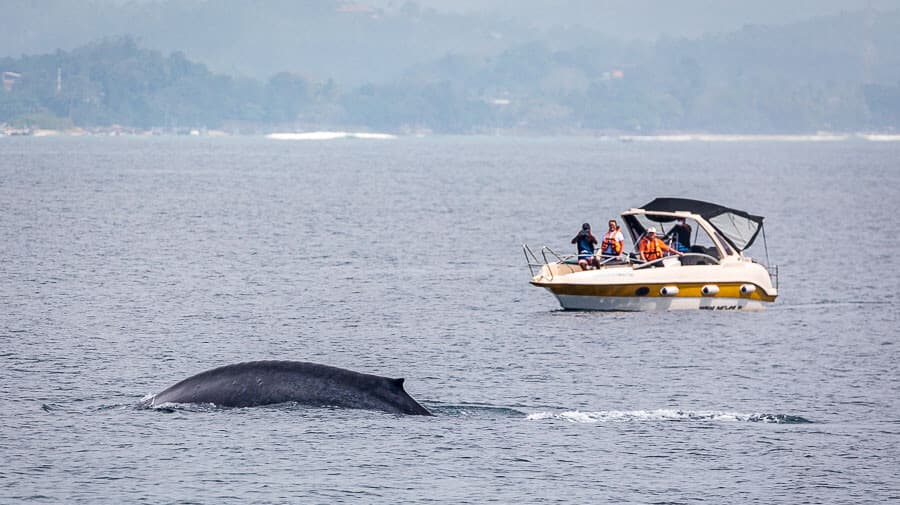
Mirissa, Sri Lanka: A haven for whale-watching
What's the story
Mirissa, a small town on the southern coast of Sri Lanka, is renowned for its stunning beaches and as a prime location for whale-watching.
This activity has gained popularity among tourists seeking to observe these majestic creatures in their natural habitat.
The town offers a serene escape with its picturesque views and the unique opportunity to witness the largest mammals on Earth.
Timing
Best time for whale-watching
The ideal period for whale-watching in Mirissa is from November to April when the sea is calm and visibility is high.
During these months, you're more likely to spot blue whales, sperm whales, and sometimes even killer whales.
Early morning tours are recommended as they offer better chances of sightings and the sea is usually more tranquil.
Selection
Choosing your tour operator
Selecting a reputable tour operator is crucial for a safe and enjoyable whale-watching experience.
Look for operators who prioritize safety and ethical practices toward marine life.
It's advisable to check reviews online or ask for recommendations from locals or fellow travelers.
Ensure that the operator provides life jackets and follows guidelines that prevent disturbance to the whales.
Essentials
What to bring on your trip
For your whale-watching trip, ensure to pack light but include essentials.
Sunscreen, sunglasses and a hat are crucial for protection against the sun.
Carry seasickness pills if you're prone to motion sickness. Binoculars can greatly enhance your viewing experience.
Don't forget to bring snacks and water, though some operators might provide refreshments.
This preparation will help make your experience enjoyable and comfortable.
Conservation
Respect marine life
In Mirissa, respecting marine life during whale-watching is crucial.
This involves staying quiet during sightings and avoiding actions that could stress the whales.
It's important to select tour operators committed to sustainable practices, which protect these magnificent creatures and their habitat.
Such practices ensure the whales remain undisturbed by our presence, contributing to their safety and well-being in their natural environment.